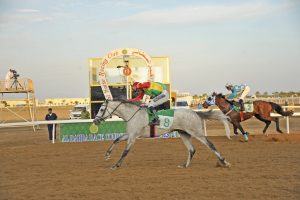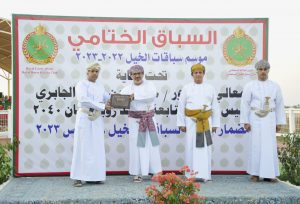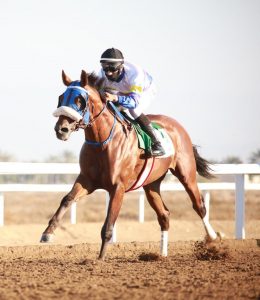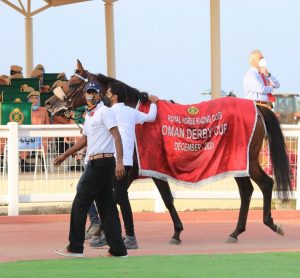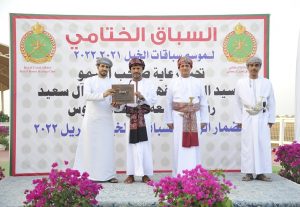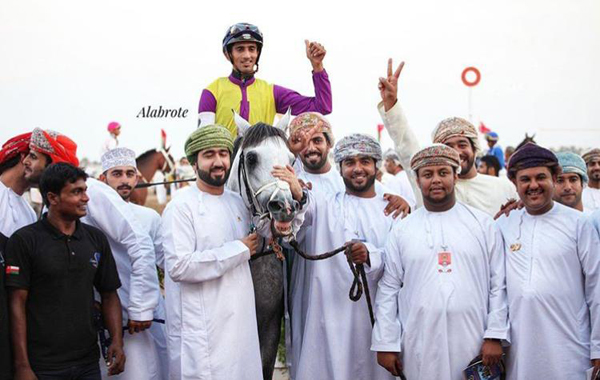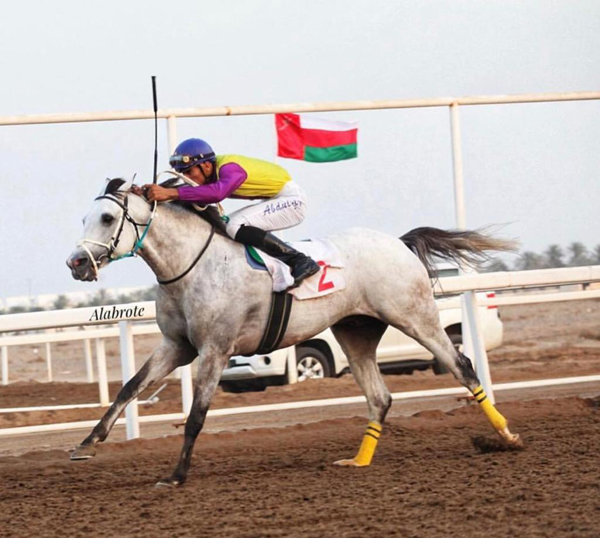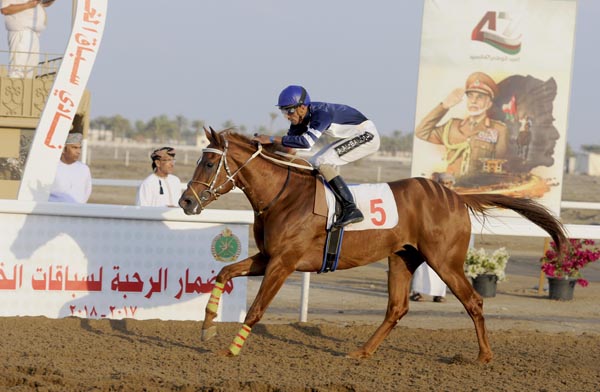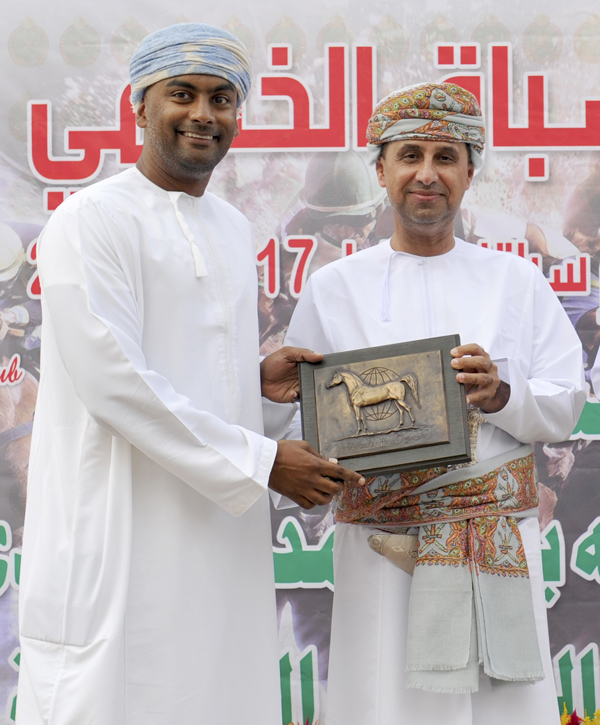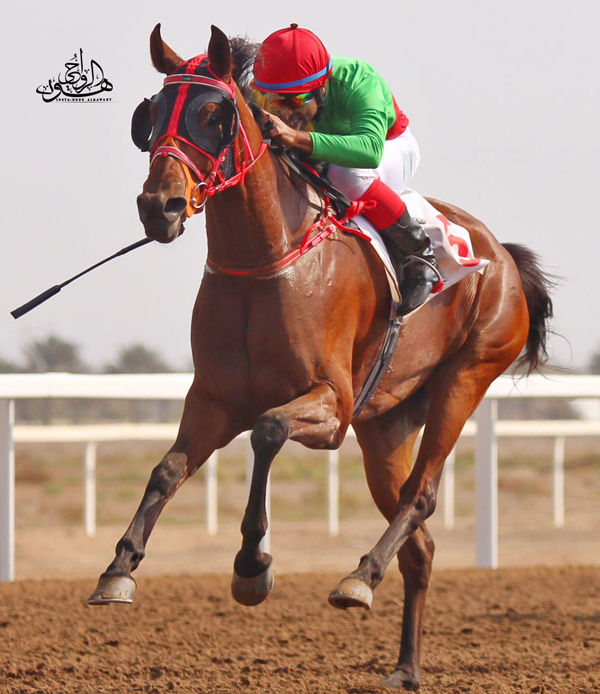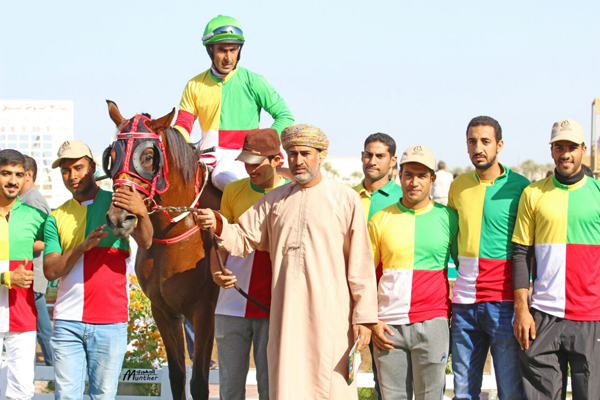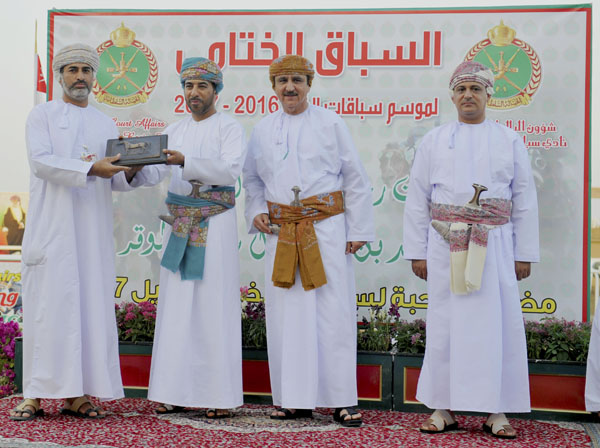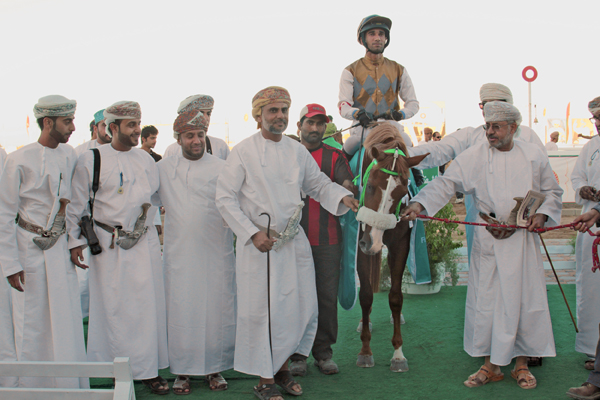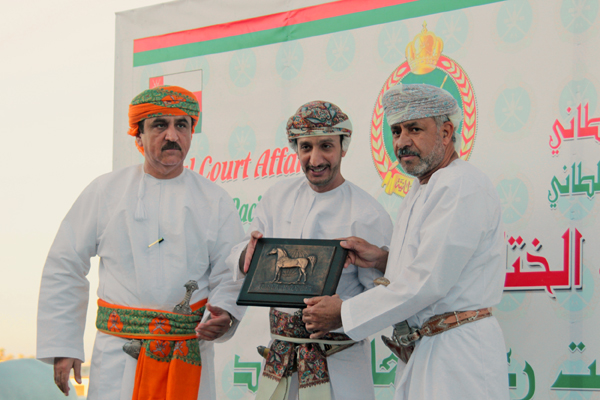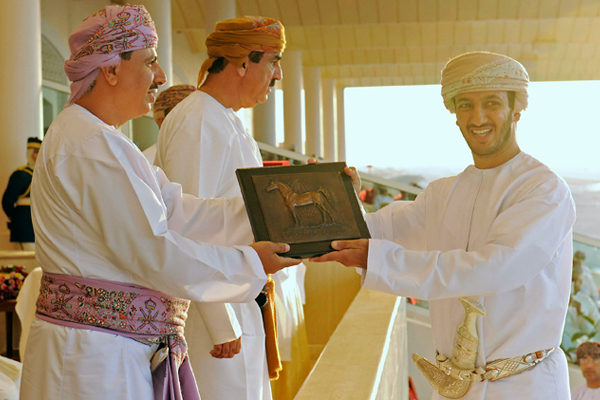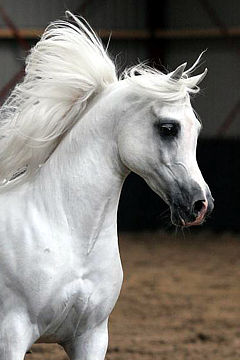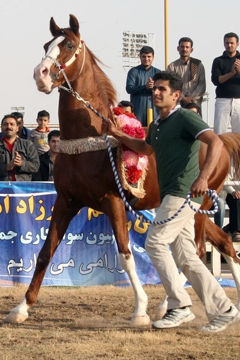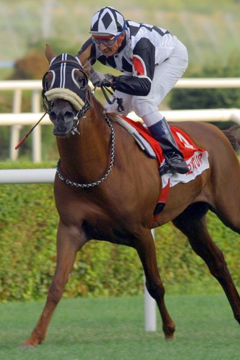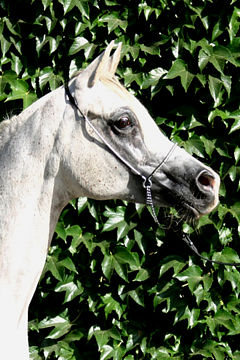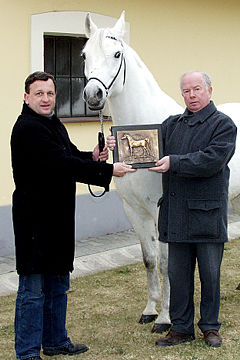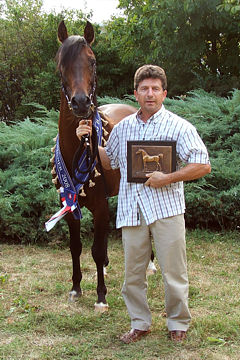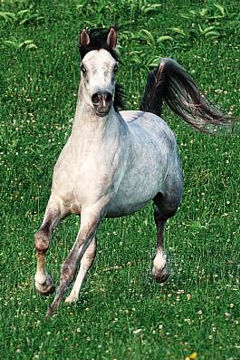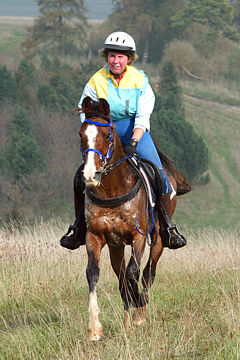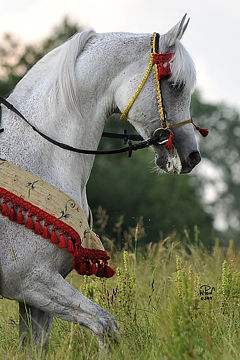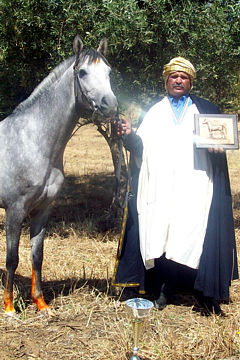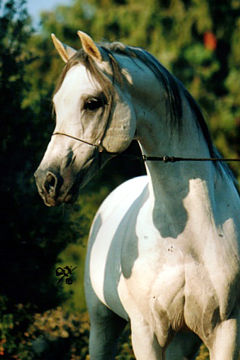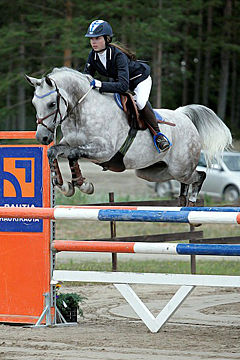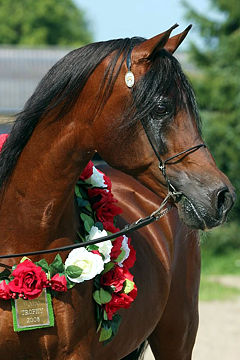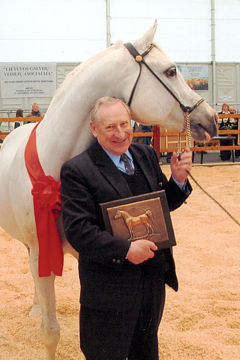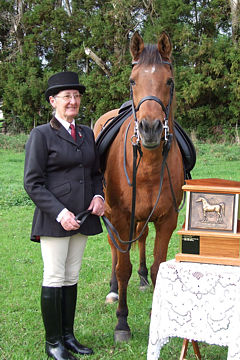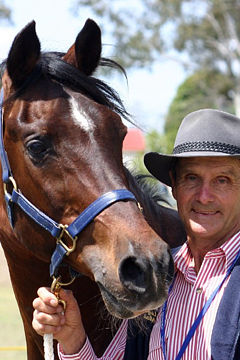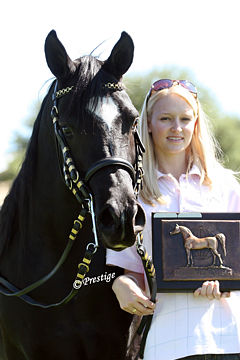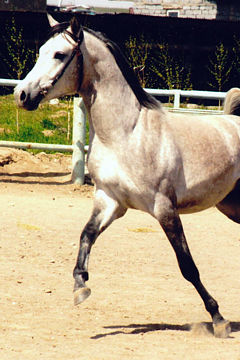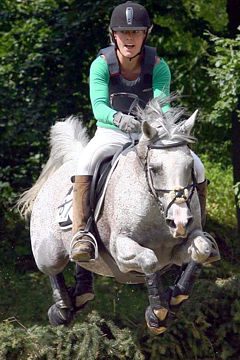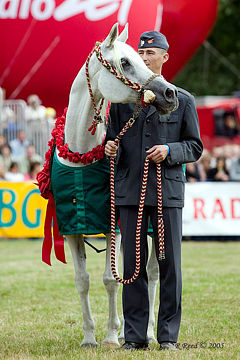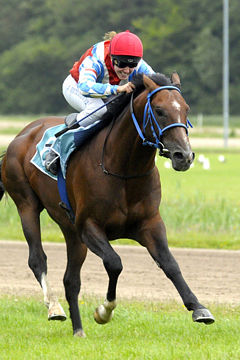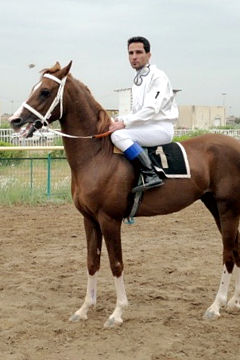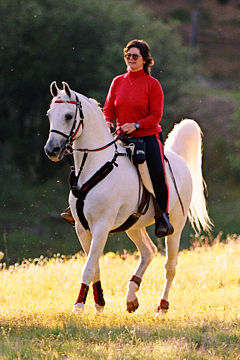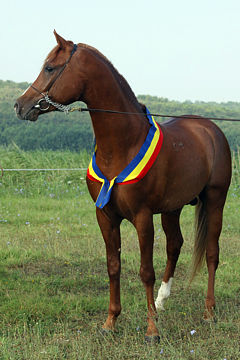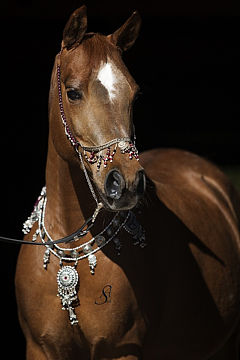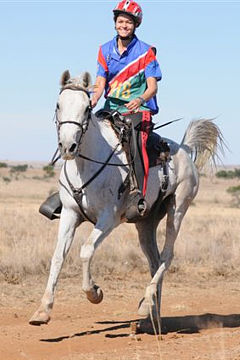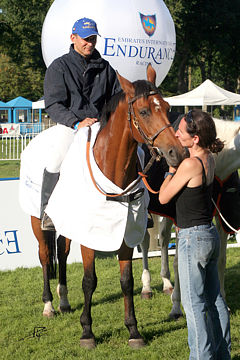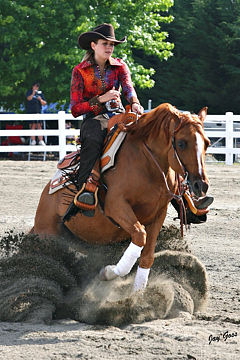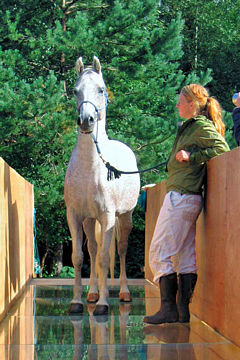![]()
Member Report from Oman
REPORT MADE AT THE 2022 CONFERENCE
Dear Heads of Delegates and audience, I am Sulaiman Al-hattali, Sultanate of Oman Stud Book Registrar, my co-delegate is Mr. Khalil Alriyami from Oman’s horse registration office. I have the pleasure to meet you all in Amman. I would like to present details about the registration office activity in the Sultanate of Oman during the last two years 2020 – 2021. The stud book volume 8 was issued and we are currently working on volume 9.
168 horses were imported from UAE, Saudi Arabia, Qatar, Great Britain, France, USA, Italy and Slovenia. 46 horses were exported to UAE, Saudi Arabia, Qatar and France. 279 foals were registered. 190 mares were used for insemination and 52 stallions were used for insemination.
121 flat races for pure Arabians were organized and one pure Arabian horse show will take place next month organized by The Royal Cavalry of Oman under ECAHO.
Finally, I thank the organizers of this conference for their warm and generous reception.
REPORT MADE AT THE 2019 WAHO CONFERENCE:
Sarhan AlZeidi, Oman: Mr. President, Members of the Executive Committee, Ladies and Gentlemen. My name is Sarhan AlZeidi and I am working as the Director General of the Royal Cavalry in Oman. Here with me are Mr. Khalid AlSaifi and Mr. Sulaiman AlHattali from the Omani Horse Registration Office. It is our great pleasure to meet all of you here in this nice country, Australia.
I would like to present some facts about our horse registration activity in Oman during 2018. The stud book volume 7 was printed and distributed to the Registrars, and we are working currently on volume 8. In 2018, 69 horses were imported from United Arab Emirates, Saudi Arabia, Qatar, Tunisia, France, Germany, Poland, the UK and the USA. However, 21 horses were exported to the UAE, Kuwait, Qatar and the UK. 181 foals were registered. In addition, 187 mares were used for breeding and 57 stallions were used for breeding.
Looking to other activities in Oman, 121 flat races for pure Arabians were organized. Two pure Arabian shows were organized under supervision of ECAHO.
Finally, my colleagues and me would like to thank all of you and the Organizers of this Conference for their warm and generous reception. Thank you.
REPORT MADE AT 2017 WAHO CONFERENCE:
Dr. Sarhan Salim Al-Zeidi, Sultanate of Oman: (Translated from Arabic). Members of the Executive Committee, Delegates, dear audience. Good morning, I am Sarhan Salim Al-Zeidi, Director General of the Royal Cavalry. Myself and my colleagues are happy to meet you in our second home, Bahrain.
I would like to present a report about the Sultanate of Oman’s registration office for the two years 2015 and 2016. We are working on the 7th edition of the Arabian Stud Book and it was sent to WAHO’s office for review. 193 horses were imported from UAE, Saudi Arabia, Qatar, Tunisia, France, Germany, Spain, UK, and USA. 16 horses were exported to Bahrain, UAE and Qatar. The total number of registered foals in the period was 245. Mares used for breeding were 260, and 70 stallions were used for breeding.
Regarding our other Activities: The number of flat races in the last season was 180 races. An Arabian Show Championship is organized each year, and we wish to increase the number to three championship shows each year before organizing an international championship show.
Finally, I would like to thank the hosts organizers of this Conference for their warm reception and hospitality.
REPORT MADE AT 2014 WAHO CONFERENCE:
Mr. Faisal Mahboob Al Raisi, Oman: (translated from Arabic). Mr. President, dear Delegates, ladies and gentlemen. I am Faisal Mahboob Hassan, director-general of Oman’s Royal Cavalry. I am very pleased to meet you all again in our second home, Qatar.
Oman is one of the countries taking care of Arabian horses and devotes attention to its breeding. Our long established registration office is a constructive step in regulating the movement of horses and their breeding in Oman. Since the last Conference, our office successfully completed Volume 6 of our stud book and it was distributed to Members of WAHO. Work is in progress right now to distribute it to a bigger number of members and our office is focused now in the preparation of volumes 7 and 8.
Between 2011 and 2013 more than 300 horses were imported from several countries, and about 150 were exported from Oman. A large Arabian Horse Festival is organized every year in Oman, and many races are organized every year, our racing season runs from October until April. We also organize horse shows.
In conclusion, I would like to thank the organizers of this Conference for their generous hospitality and warm reception and to Miss Katrina Murray for her efforts in organizing this Conference.
REPORT MADE AT 2011 WAHO CONFERENCE:
Mr. Faisal bin Mahboob Al Raisi, Sultanate of Oman: Mr. President, members of the Executive Committee, honourable guests. I am Faisal Mahboob Hassan, Director General of the Royal Cavalry in the Sultanate of Oman. It is my pleasure to meet you all again at this important Conference. My co-delegate is Mr. Khalid Al-Saifi, Director of Horse Registration.
Oman is a leading country in preserving pure Arabian horses and it is keen to select the best and oldest pedigrees. We also encourage local breeding by giving incentives to horse owners and helping them in selecting the good reputed stallions and increasing the racing prizes for locally bred horses.
We have recently published the 6th volume of our Purebred Arabian Horse Studbook which will be sent to all registration offices approved by WAHO. We are currently working on the 7th volume which will probably be published next year. We have imported horses from the following countries: UAE, Qatar, France, UK, USA, Poland, Germany and Russia. We have exported horses to the following countries: UAE, Qatar, UK, France.
The Royal Cavalry is the only authority in Oman which registers horses. We also organize horses races where purebred Arabian horses compete at Al-Felaij racecourse. This racecourse is constructed to be in line with the international standards, and it is equipped with the state-of-art equipment and prepared in a way that ensures the safety of riders and horses. We give prizes to the winners in these races. We also allocate some races for horses locally bred in Oman aiming to preserve and encourage local people to breed purebred Arabian horses. Furthermore, we allocate a race for Fegentri. Worth mentioning is that we organize seminars for horse owners to raise awareness of how to care for the horses and treat them.
Finally, I would I would like to express our thanks to our hosts, the Qatar Racing and Equestrian Club under the patronage of His Highness Sheikh Abdullah bin Khalifa Al Thani, for their warm welcome and generous hospitality and the good organization of this Conference. I would like also to thank the WAHO President and the Executive Committee and Katrina and her assistant Mrs. Natalie, and the members of WAHO.
REPORT MADE AT 2009 WAHO CONFERENCE:
My name is Faisal Bin Mahboob Al-Raisi, Director General of The Royal Cavalry and my co-delegate is my colleague Salem Bin Suleiman Al Mahrooqi, Deputy Director General of The Royal Cavalry and General Coordinator of the WAHO Conference 2009 in Muscat whom I think you all know through your communications with him over the past twenty years.
I would like to present you here with a concise report on the management strategy of purebred Arabians that The Royal Cavalry has adopted in the Sultanate since joining WAHO as a Member in 1979.
Our registration season starts every year in January by the Arabian Registry Office in the Omani Royal Cavalry. Throughout this period the office provides breeders with technical advice and helps them in selecting the appropriate breedings. The registration data is recorded on special forms which are then entered in the Registry Office’s Arabian database. The Royal Cavalry has, in fact, mobilized all that is required of both modern technical and veterinary support to ensure successful and safe breeding. Before registering any foal, an official written identification is made of it. A DNA test for parent verification of foals is also used as well as microchips which have a hidden code in compliance with international norms. After that, the foals are registered in the stud book registry and passports are issued for them including information about pedigree, identification, health and administrative follow up.
Every four years a stud book in compliance with the WAHO norms is also issued. The current Arabian stud book is Volume 6 and it’s actually under printing. Every year about 80 foals are registered. We allow the use of Artificial Insemination and Embryo Transfer.
Oman has witnessed a remarkable increase in the number of private breeders of Arabians which currently exceeds 60 breeders in comparison with the situation at the beginning of the 1980’s when their number was hardly remarkable. We also offer education and seminars on the care of horses.
Concerning exports and imports, we follow all the WAHO rules for this and we exported around 60 horses to Saudi Arabia, to the UAE, to Bahrain and to Qatar, and also to Italy. We imported around 120 horses from the UAE, Saudi Arabia, Bahrain, Qatar, USA, Germany, France, Denmark and many other countries.
The Royal Cavalry in the Sultanate of Oman has taken special care of purebred Arabian horses, and many activities are arranged for them, such as:
Local and International races: Annually nine race meetings are held on the Omani racetracks. We have National and International racing and we also have races for lady jockeys. Oman is a member of IFAHR and we have also sent our horses to participate in races overseas. These races, indeed, have witnessed the unconditional support on the part of His Majesty Sultan Qaboos who has always showed great interest in the Arabian purebred horses as part of Oman’s cultural heritage.
Arabian horse shows: Omani Arabian horses, in fact, participate every year in a number of International competitions in, for instance, the UAE, Qatar, the UK and France.
Endurance races: A growing interest in such kind of races has recently been noticed in the Sultanate of Oman. This interest has culminated in the Sultanate’s participation in the last World Championship in Malaysia.
We also offer many local activities for horsemanship and we take special care to keep many of our traditions alive. You will see some of our traditional horsemanship displays during your stay here. We also have a website, www.rca.gov.om which we invite you to visit, the text is available in English and Arabic. Last but not least, the Arabian Registry Office in the Sultanate of Oman will continue to attach great care to following all the rules and regulations of WAHO. We also attach great importance to maintaining relations of cooperation and friendship with all the WAHO Registries all over the world, this guarantees the best help to the Arabian horse in order to evolve and to develop the status of the breed worldwide. We will also continue to preserve the purity of the Arabian blood and will contribute actively in promoting the Arabian breed on a national level and also worldwide. I thank you all.
REPORT MADE AT 2007 WAHO CONFERENCE:
Oman is now working on issuing the next volume of our stud book, in which there are 679 Arabian horses registered. It covers the period since 2000 and it will be printed by the end of 2007.
Between 60 and 100 foals are born each year in Oman. It is worth mentioning in this regard that since 2000 up until now, 32 horses were imported from England, 6 from Qatar, 3 from Denmark, 1 from Australia, 4 from Germany, 2 from Italy, 25 from France, 1 from Lebanon, 1 from Russia, and 1 from USA. 18 horses were exported in this period.
DNA is used to identify and parent verify all the purebred Arabian horses and micro-chipping is also used. The use of Artificial Insemination and transported semen are permitted, also the use of embryo transfer. Racing and endurance are popular activities in Oman, at present there is no showing. Horses from Oman also take part in shows and races in neighbouring countries and have achieved success in these events.
In the year 2007, 80 foals were registered. 24 horses were exported and 7 imported in the same period.

